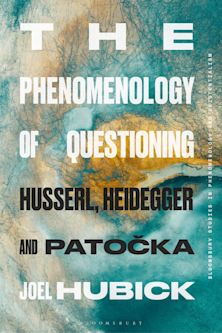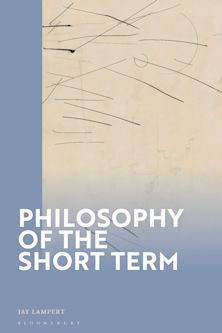Hegel and the Problem of Beginning
Scepticism and Presuppositionlessness
Hegel and the Problem of Beginning
Scepticism and Presuppositionlessness
This product is usually dispatched within 3 days
- Delivery and returns info
-
Free CA delivery on orders $40 or over
Description
Hegel opens the first book of his Science of Logic with the statement of a problem: “The beginning of philosophy must be either something mediated or something immediate, and it is easy to show that it can be neither the one nor the other, so either way of beginning finds its rebuttal.” Despite its significant placement, exactly what Hegel means in his expression of this problem and exactly what his solution to it is, remain unclear.
In this book, Robb Dunphy provides a detailed engagement with Hegel’s “problem of beginning”, locating it within Hegel’s account of significant approaches to the topic of beginning in the history of Western philosophy, as well as making an extended case for the influence of Pyrrhonian Scepticism on the beginning of Hegel’s Logic. Dunphy’s discussion of the various putative solutions that Hegel might be thought to put forward contributes to debates concerning Hegel’s views on the methodology of logic, the relation between his Logic and his Phenomenology of Spirit, and differences between his Encyclopaedia presentation of logic and that of his greater Science of Logic.
Hegel and the Problem of Beginning also functions as a critical commentary on Hegel’s essay, “With what must the beginning of the science be made?” which should be of interest to both researchers and students working on the opening of Hegel’s Logic.
Table of Contents
Abbreviations
Introduction: With What Must the Beginning of the Science be Made?
0.0 Introduction
0.1 Hegel's Logic and its Beginning
0.2 Hegel and Pyrrhonian Scepticism
0.3 A Brief Précis of “With what must the beginning of the science be made?”
0.4 Conclusion
Chapter 1: Hegel and Pyrrhonian Scepticism
1.0 Introduction
1.1 Sextus' Account of Pyrrhonism
1.2 Hegel and Pyrrhonism
1.3 Conclusion
Chapter 2: A Short History of the Problem of Beginning
2.0 Introduction
2.1 The Objective and the Subjective Beginning
2.2 The Methodological Beginning
2.3 The Modern Problem of Beginning
2.4 Hegel on First Principles and the Beginning
2.5 Conclusion
Chapter 3: The Problem of Beginning
3.0 Introduction
3.1 The Problem of Beginning: Preliminary Investigation
3.2 The Problem of Beginning as an Agrippan Problem
3.3 The Solution to the Problem of Beginning
3.4 Alternatives Criticised, Objections Anticipated
3.5 Conclusion
Chapter 4: Mediation I: Phenomenology
4.0 Introduction
4.1
Product details
| Published | Feb 12 2025 |
|---|---|
| Format | Paperback |
| Edition | 1st |
| Extent | 192 |
| ISBN | 9781538147573 |
| Imprint | Rowman & Littlefield Publishers |
| Dimensions | 237 x 156 mm |
| Publisher | Bloomsbury Publishing |
Reviews

ONLINE RESOURCES
Bloomsbury Collections
This book is available on Bloomsbury Collections where your library has access.

































